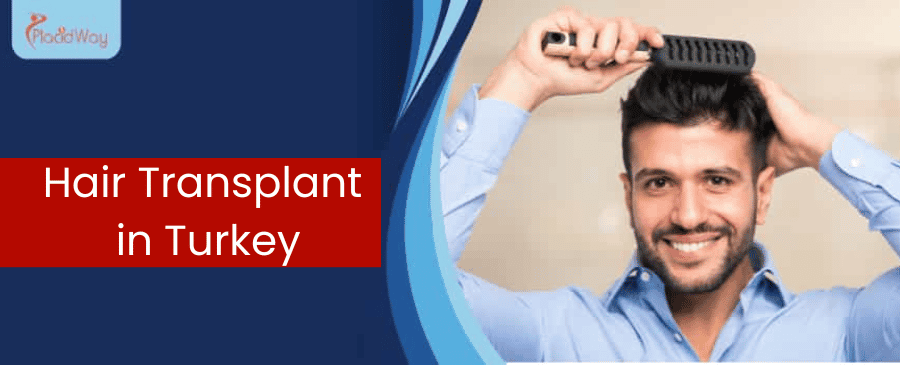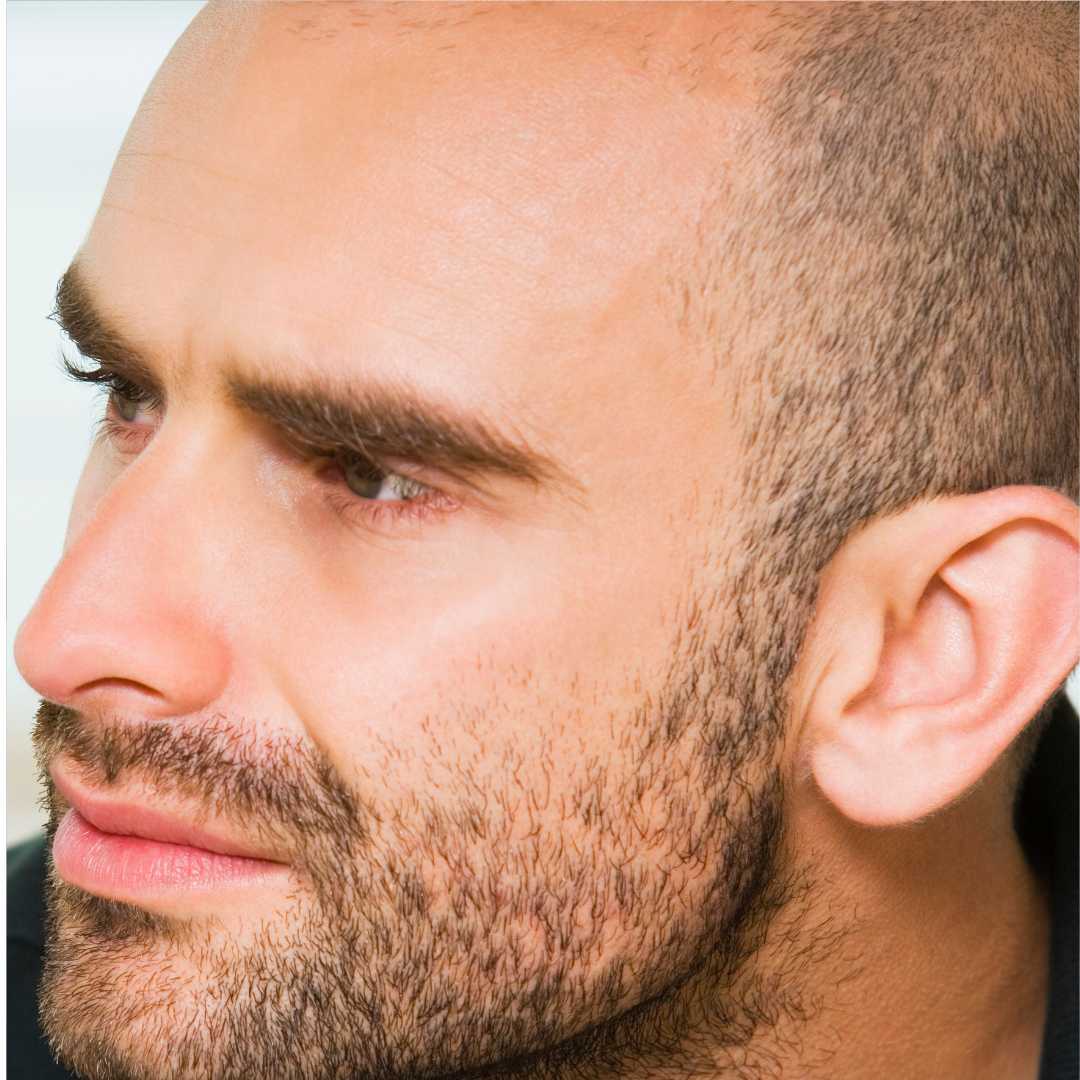Hair Transplant in Turkey: Are You the Right Candidate for Restoration?

The decision to pursue a hair transplant in Turkey has become increasingly popular for individuals seeking effective and affordable solutions for hair loss. Turkey has established itself as a global hub for hair restoration, attracting thousands of international patients annually due to its advanced techniques, experienced surgeons, and competitive pricing. However, a crucial first step before considering this journey is understanding: "Who is a good candidate for a hair transplant in Turkey?" The answer involves a combination of factors related to your hair loss pattern, overall health, and realistic expectations.
This comprehensive guide will delve into the essential criteria that define an ideal candidate for a hair transplant in Turkey, exploring the common types of hair loss addressed, the importance of donor hair, and what makes Turkey a preferred destination for this life-changing procedure.
Who is generally considered a good candidate for a hair transplant in Turkey?
"A good candidate for a hair transplant in Turkey is typically an individual with stable, established hair loss, sufficient healthy donor hair, good general health, and realistic expectations about the outcome of the procedure."
This broad definition covers the primary considerations. Most clinics prioritize individuals whose hair loss has stabilized, rather than those experiencing rapid or unpredictable shedding. This ensures that the transplanted hair will have a lasting effect and integrate seamlessly with existing hair. The availability of a robust donor area, usually at the back and sides of the head, is paramount as these are the regions from which grafts are harvested. Finally, being in good health minimizes surgical risks and promotes optimal healing.
What type of hair loss makes someone a good candidate?
"The most common type of hair loss that makes someone a good candidate for a hair transplant in Turkey is androgenetic alopecia (male or female pattern baldness), where hair loss is stable and confined to specific areas, leaving healthy donor regions."
Androgenetic alopecia is genetic and hormonal, leading to a predictable pattern of hair thinning and baldness. For men, this often manifests as a receding hairline, crown thinning, or complete baldness on top, while the hair on the sides and back remains robust. For women, it typically appears as diffuse thinning over the crown, though some may experience receding hairlines. Because the hair follicles in the donor areas are genetically resistant to hair loss, they will continue to grow naturally even when transplanted to balding areas. Other forms of hair loss, such as those caused by trauma, burns, or specific types of stable scarring alopecia, can also be successfully treated with a hair transplant.
How important is donor hair for a successful hair transplant?
"Sufficient and healthy donor hair is critically important for a successful hair transplant. Without enough high-quality grafts from the donor area, it is not possible to achieve a satisfactory density or coverage in the recipient areas."
The donor area, usually the back and sides of the scalp, is the source of the hair follicles that will be transplanted. These follicles are genetically programmed to resist balding, ensuring that the transplanted hair will be permanent. The density, thickness, and overall health of this donor hair directly impact the potential results of the hair transplant. A skilled surgeon will assess the donor area carefully to determine how many grafts can be safely harvested without causing visible thinning in that region, striking a balance between maximizing coverage and preserving the donor site's appearance.
Are there age restrictions for hair transplant candidates?
"While there isn't a strict upper age limit, most hair transplant clinics in Turkey prefer candidates to be over 25 years old. This is because hair loss patterns can still be evolving in younger individuals, making it harder to predict future balding and design a natural-looking, long-term result."
Performing a hair transplant on very young individuals whose hair loss is still active can lead to an unnatural appearance as non-transplanted hair continues to thin. Waiting until the hair loss pattern has stabilized allows the surgeon to create a more effective and aesthetically pleasing hairline and density that will stand the test of time. For older individuals, as long as they are in good general health and have sufficient donor hair, age is generally not a barrier.
What role does general health play in hair transplant candidacy?
"Good general health is vital for anyone considering a hair transplant in Turkey. Patients should not have uncontrolled chronic illnesses, active infections, or certain medical conditions that could compromise the surgical outcome or healing process."
Since a hair transplant is a surgical procedure, the patient's overall health significantly influences safety and recovery. Conditions like uncontrolled diabetes, severe heart disease, or bleeding disorders can increase risks. Patients should openly discuss their full medical history and any medications they are taking with their surgeon during the consultation. Clinics in Turkey prioritize patient safety and will conduct necessary pre-operative tests to ensure the candidate is fit for the procedure.
Can women be good candidates for a hair transplant in Turkey?
"Yes, women can be excellent candidates for a hair transplant in Turkey, particularly those with localized hair loss patterns, such as a receding hairline or thinning in specific areas, and a stable, healthy donor region."
While male pattern baldness is the most common reason for hair transplants, many women also experience hair thinning and loss. However, female hair loss often presents differently, with diffuse thinning across the entire scalp being more prevalent than distinct bald spots. Women with diffuse thinning may not be ideal candidates if their donor hair quality is also compromised. The best female candidates are those with a clear, stable pattern of hair loss and strong, healthy donor hair, similar to men.
Why are realistic expectations important for a hair transplant?
"Having realistic expectations is crucial for satisfaction with hair transplant results. While the procedure can significantly improve hair density and restore hairlines, it cannot create an entirely new head of hair from nothing or stop future hair loss of existing non-transplanted hair."
A hair transplant redistributes existing hair from areas of abundance to areas of thinning. It’s not a magic bullet for unlimited hair. Good candidates understand that the goal is to achieve a natural-looking enhancement of their current hair situation. Surgeons in Turkey are adept at explaining what is realistically achievable based on the individual's donor hair supply, the extent of hair loss, and hair characteristics like texture and color. Patients should also understand that results take time to fully mature, typically 12-18 months.
How do FUE and DHI techniques affect candidacy in Turkey?
"Both FUE (Follicular Unit Extraction) and DHI (Direct Hair Implantation) are popular and effective hair transplant techniques in Turkey. While both aim to achieve natural results, the choice of technique is determined by the surgeon based on the patient's specific hair loss, donor characteristics, and desired outcome, rather than fundamentally changing candidacy."
- FUE involves extracting individual follicular units directly from the donor area using a micro-punch tool and then implanting them into recipient sites created by the surgeon. It's highly versatile and suitable for various hair loss patterns.
- DHI uses a specialized Choi Implanter Pen to simultaneously create the incision and implant the graft. This allows for greater precision in angle and depth, often resulting in higher density and is particularly favored for hairline restoration or smaller areas.
Turkish clinics excel in both methods, and the suitability for each technique is assessed during the consultation, depending on factors like desired density, hair texture, and the size of the area to be covered.
What is the typical recovery time after a hair transplant in Turkey?
"The initial recovery from a hair transplant in Turkey usually involves 10-15 days for scabs to shed and the scalp to heal, with most patients able to return to light activities within a few days. Fuller results appear over 12-18 months as the transplanted hair grows."
Immediately after the procedure, small scabs will form in the recipient area, and the donor area will begin to heal. Patients are given specific post-operative instructions for washing and caring for the transplanted area. Swelling can occur, typically subsiding within a few days. Around 2-4 weeks post-surgery, "shock loss" may occur, where some transplanted hairs temporarily shed, which is a normal part of the process. New hair growth usually begins around 3-4 months, with significant density noticeable by 6-9 months, and the final, mature results visible at 12-18 months.
What are the success rates of hair transplants in Turkey?
"The success rate of hair transplants in Turkey is generally very high, often cited as over 90-95%, particularly when performed by experienced surgeons using advanced techniques like FUE and DHI in reputable clinics."
High success rates are a significant draw for patients choosing Turkey. This high rate refers to the survival and growth of the transplanted hair follicles. Factors contributing to this success include the surgeon's skill, the quality of the donor hair, patient adherence to post-operative care instructions, and the use of modern transplantation methods. It's important to remember that "success" means healthy growth of transplanted hair, leading to natural-looking density, not necessarily achieving a full head of hair if donor supply is limited.
How much does a hair transplant cost in Turkey?
"The cost of a hair transplant in Turkey is significantly lower than in many Western countries, typically ranging from $1,500 to $4,000 USD for FUE or DHI procedures, depending on the number of grafts and the clinic."
This affordability is a major factor in Turkey's popularity for hair restoration. While prices can vary based on the clinic's reputation, the surgeon's experience, the number of grafts required, and the specific technique used, the overall cost remains highly competitive. Many clinics offer all-inclusive packages that cover the surgery, accommodation, airport transfers, and post-operative care, providing excellent value for international patients.
What are the potential risks of a hair transplant?
"While generally safe, potential risks of a hair transplant include mild swelling, temporary numbness, itching, infection (rare), scarring (minimal with FUE/DHI), and shock loss of existing hair. Choosing a reputable clinic and experienced surgeon significantly minimizes these risks."
Most side effects are temporary and mild. Swelling, particularly on the forehead, is common but resolves within a few days. Temporary numbness in the donor or recipient areas can last for weeks or months. Itching is a normal part of the healing process. While infection is a risk with any surgery, it's rare with proper hygiene and antibiotics. Scarring from FUE or DHI is typically tiny, dot-like, and barely noticeable. Shock loss, the temporary shedding of existing hair around the transplanted area, usually regrows within a few months. Ensuring the clinic adheres to high hygiene standards and the surgeon has proven expertise is key to mitigating these potential issues.
Ready to explore your options for hair restoration with leading specialists in Turkey? PlacidWay can connect you with accredited clinics, provide detailed treatment profiles, and help you get personalized quotes to begin your journey to a fuller head of hair.







.png)
_imresizer.jpg)
.png)
.png)






Share this listing